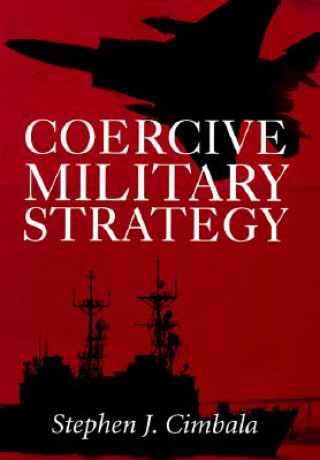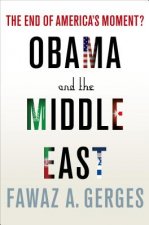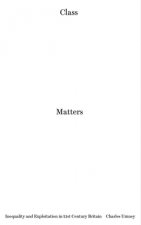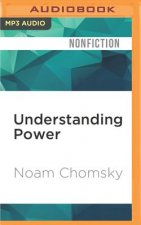
Kod: 06317694
Coercive Military Strategy
Autor Stephen J. Cimbala
Coercion is persuasion supported by the threat or use of force. Just as warfare is often "diplomacy carried out by other means", coercion -- the threat of combat or the threat of an escalation in the intensity of combat -- is a mo ... więcej
- Język:
 Angielski
Angielski - Oprawa: Twarda
- Liczba stron: 229
Wydawca: Texas A & M University Press, 1998
- Więcej informacji o książce

264.73 zł
Dostępność:
50 % szansa Otrzymaliśmy informację, że książka może być ponownie dostępna. Na podstawie państwa zamówienia, postaramy się książkę sprowadzić w terminie do 6 tygodni. Gwarancja pełnego zwrotu pieniędzy, jeśli książka nie zostanie zabezpieczona.
Otrzymaliśmy informację, że książka może być ponownie dostępna. Na podstawie państwa zamówienia, postaramy się książkę sprowadzić w terminie do 6 tygodni. Gwarancja pełnego zwrotu pieniędzy, jeśli książka nie zostanie zabezpieczona.Przeszukamy cały świat
Zobacz książki o podobnej tematyce
Bon podarunkowy: Radość gwarantowana
- Podaruj bon o dowolnej wartości, a my się zajmiemy resztą.
- Bon podarunkowy dotyczy całej naszej oferty.
- Możesz wydrukować elektroniczny bon z e-maila a następnie przekazać go obdarowanemu.
- Ważność bonu wynosi 12 miesięcy od daty wystawienia.
Powiadomienie o dostępności
Wpisz swój adres e-mail, aby otrzymać od nas powiadomienie,
gdy książka będzie dostępna. Proste, prawda?
Więcej informacji o Coercive Military Strategy
Za ten zakup dostaniesz 154 punkty
 Opis
Opis
Coercion is persuasion supported by the threat or use of force. Just as warfare is often "diplomacy carried out by other means", coercion -- the threat of combat or the threat of an escalation in the intensity of combat -- is a more subtle method of dispute that shades the spectrum between diplomacy and warfare. Understanding of coercive military strategy is a prerequisite to the successful making of either policy or war.In Coercive Military Strategy, Stephen J. Cimbala shows that coercive military strategy is a necessary part of any diplomatic-strategic recipe for success. Few wars are total wars, fought to annihilation, and military power is inherently political, employed for political purpose, in order to advance the public agenda of a state, so in any war there comes a time when a diplomatic resolution may be possible. To that end, coercive strategy should be flexible, for there are as many variations to it as there are variations in wars and warfare.Cimbala observes several cases of applying coercive strategy in the twentieth century: the U.S. strategy of limited war during the Cold War; the Cuban Missile Crisis, in which both the United States and the Soviet Union applied coercive strategy; Desert Storm, in which the Coalition Forces could practice coercion within the framework of large-scale, but limited, war; and the Vietnam War, in which U.S. coercive strategy was ultimately a failure.Additionally, Cimbala examines coercion and the theory of collective security, which implies a willingness on the part of individual states, such as the NATO nations, to combine against any aspiring aggressor.With his examples, and the arguments they illustrate, Cimbala shows thatalthough coercive strategy is a remedy for neither the ailments of U.S. national security nor world conflict, it will become more important in peace, crisis, and even war in the next century, when winning with the minimum of force or without force will become more important tha
 Szczegóły książki
Szczegóły książki
Kategoria Książki po angielsku Society & social sciences Politics & government Central government
264.73 zł
- Pełny tytuł: Coercive Military Strategy
- Autor: Stephen J. Cimbala
- Język:
 Angielski
Angielski - Oprawa: Twarda
- Liczba stron: 229
- EAN: 9780890968369
- ISBN: 9780890968369
- ID: 06317694
- Wydawca: Texas A & M University Press
- Waga: 562 g
- Wymiary: 239 × 162 × 25 mm
- Data wydania: 01. October 1998
Ulubione w innej kategorii
-

Laws of Power
165.70 zł -4 % -

Rise and Fall of the Great Powers
79.47 zł -23 % -

Last Hours of Ancient Sunlight: Revised and Updated Third Edition
77.56 zł -5 % -
![What Has the Government Done to Our Money? [Reprint of First Edition] What Has the Government Done to Our Money? [Reprint of First Edition]](https://media.libris.to/jacket/08800577t.jpg)
What Has the Government Done to Our Money? [Reprint of First Edition]
34.54 zł -

New Tsar
47.34 zł -23 % -

Countdown
150.22 zł -

What's Wrong with Protectionism
144.55 zł -

Blowback
67.58 zł -

Weapons of Math Destruction
54.09 zł -15 % -

Vision of the Anointed
85.62 zł -5 % -

The Quest for Cosmic Justice
77.56 zł -5 % -

Soul at Work
77.46 zł -5 % -

Capital in the Twenty-First Century
215.97 zł -

Wealth, Poverty and Politics
165.70 zł -4 % -

Public Opinion by Walter Lippmann
65.37 zł -

Kissinger
75.74 zł -26 % -

Confessions of a Greenpeace Dropout
206.70 zł -

Regulating Cannabis
43.21 zł -20 % -

Accessory to War
134.78 zł -

Austerity
61.14 zł -23 % -

How Much is Enough?
51.87 zł -23 % -

Five Stages of Collapse
101.84 zł -4 % -

Radical Markets
147.97 zł -4 % -

Breaking the Vicious Circle
210.13 zł -

Chasing the Scream
77.56 zł -5 % -

Cortical Visual Impairment - Approach to Assessment
437.40 zł -

Preserving Biodiversity
43.61 zł -

In Defense of Degrowth
122.59 zł -

Columbine High School Massacre
133.77 zł -

Barack Obama Speeches
88.74 zł -23 % -

Oxford Handbook of the Welfare State
196.03 zł -

American Age
291.33 zł -4 % -

Production of Money
51.87 zł -9 % -

American Power And The New Mandarins
116.95 zł -

Obama and the Middle East
82.60 zł -4 % -

Millipedes and Moon Tigers
150.19 zł -

Is Democracy Failing?
60.94 zł -23 % -

Understanding E-Government in Europe
326.18 zł -

Foreign Policy Begins at Home
109.19 zł -

Fairness versus Welfare
303.72 zł -

Monetary Nationalism and International Stability
60.23 zł -

Class Matters
116.04 zł -5 % -

Watchdog Still Barks
135.08 zł -9 % -

Environmental Policy
285.68 zł -

Stop! Armed Police!
128.73 zł -14 % -

Sustainable Failures
152.31 zł -10 % -

NYE
151.20 zł -

Global Warming Scam
97.30 zł -5 % -

Understanding Power: The Indispensable Chomsky
125.01 zł
zadowolonych klientów
Od roku 2008 obsłużyliśmy wielu miłośników książek, ale dla nas każdy był tym wyjątkowym.
Copyright! ©2008-24 libristo.pl Wszelkie prawa zastrzeżonePrywatnieCookies






 21 milionów książek
21 milionów książek Dostawa 10.99 zł
Dostawa 10.99 zł (32) 444 93 66 (8-15.30h)
(32) 444 93 66 (8-15.30h)